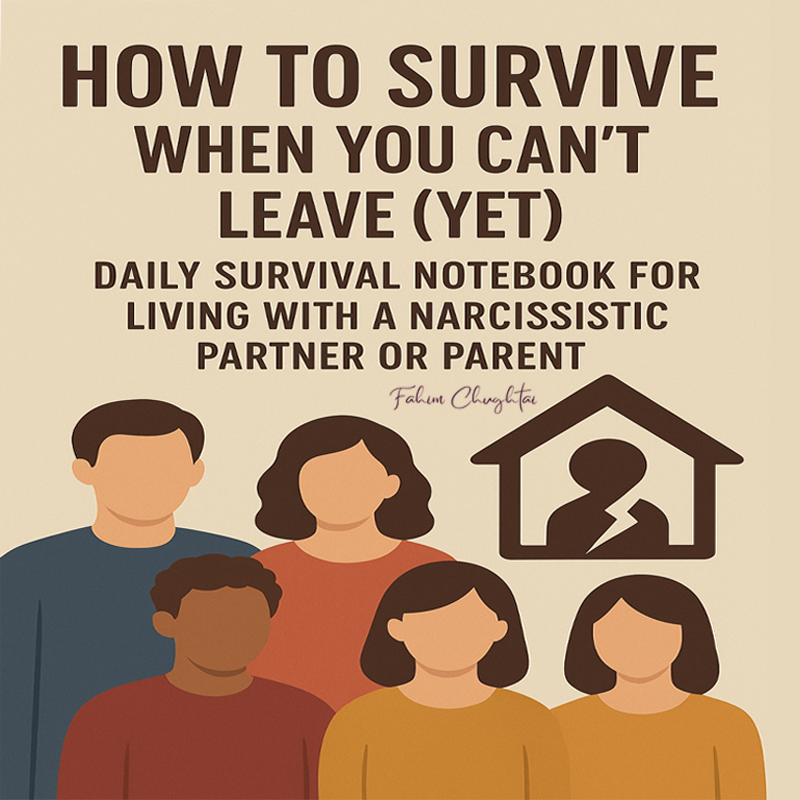If you’ve been questioning your sanity, wondering why you feel constantly confused around someone you love, or asking yourself “What are these weird things covert narcissists do that make me feel so off-balance?” – you’re not alone, and more importantly, you’re not imagining it. Unlike their loud, attention-seeking counterparts, covert narcissists operate in the shadows, using subtle manipulation tactics that can leave you feeling like you’re losing your mind.
- Understanding Covert Narcissism: The Hidden Manipulation
- 15 Weird Things Covert Narcissists Do
- Why These Behaviors Feel So Confusing
- The Science Behind Covert Narcissistic Manipulation
- Breaking Free from the Confusion
- The Path Forward
- Frequently Asked Questions
- Conclusion: You’re Not Crazy – You’re Healing
The confusion you’re experiencing isn’t a flaw in your character – it’s a calculated result of sophisticated psychological manipulation. Covert narcissists master the art of making their victims question reality while maintaining a facade of innocence, humility, or even victimhood.
This comprehensive guide will walk you through 15 specific weird behaviors that covert narcissists exhibit, helping you understand exactly what you’re dealing with and why their actions feel so unsettling. By the end of this article, you’ll have the clarity you need to trust your instincts and protect your mental health.
Understanding Covert Narcissism: The Hidden Manipulation
Before diving into the specific behaviors, it’s crucial to understand what makes covert narcissism so particularly damaging. While overt narcissists display their grandiosity openly, covert narcissists disguise their need for superiority behind a mask of vulnerability, modesty, or victim mentality.
Am I Dealing With a Covert Narcissist — or Just Toxic Behavior?
This subtle approach makes their manipulation exponentially more dangerous because:
- Their abuse appears “normal” to outside observers
- Victims struggle to identify what’s happening
- The gaslighting feels more believable when delivered quietly
- Support systems often don’t recognize the abuse patterns
Research shows that covert narcissistic abuse can actually be more psychologically damaging than overt abuse because victims spend longer periods questioning their own reality before recognizing the problem.
15 Weird Things Covert Narcissists Do
1. They Fish for Compliments Through Self-Deprecation
One of the most common weird things covert narcissists do is use false modesty to extract praise. They’ll make statements like “I’m probably not smart enough for this project” or “I don’t think I’m attractive enough for that outfit,” not out of genuine insecurity, but as a manipulation tactic.
Why this is weird: Normal self-doubt looks different. A covert narcissist’s self-deprecating comments are calculated to prompt reassurance. They become irritated or sulky if you don’t immediately contradict their “humble” statements with compliments.
What you might notice:
- They repeat the same “insecure” comments until someone praises them
- Their body language doesn’t match their words (expecting praise)
- They become cold or distant if you agree with their self-criticism
- The same “weaknesses” they claim become strengths when convenient
2. They Play Victim to Gain Control
Covert narcissists are master victim players, but their victimhood serves a strategic purpose. They’ll exaggerate problems, catastrophize minor inconveniences, or resurrect old grievances to manipulate situations in their favor.
The manipulation: By positioning themselves as the injured party, they:
- Deflect attention from their harmful behavior
- Gain sympathy and special treatment
- Make others feel guilty for questioning them
- Avoid accountability for their actions
Red flag example: When confronted about hurting someone, instead of apologizing, they immediately shift to how that confrontation hurt them, making the original victim comfort their abuser.
3. They Use the Silent Treatment as Punishment
Unlike healthy individuals who might need space to process emotions, covert narcissists weaponize silence. This isn’t about self-regulation – it’s about punishment and control.
How this manifests:
- Sudden withdrawal of communication without explanation
- Ignoring you until you apologize for unknown “offenses”
- Making you chase them for basic interaction
- Returning only when you’re sufficiently distressed
The psychological impact: This tactic creates trauma bonding, where victims become addicted to the relief that comes when the narcissist finally “forgives” them and returns attention.
4. They Make Subtle Digs Disguised as Jokes
Covert narcissists excel at delivering insults wrapped in humor. They’ll make cutting remarks about your appearance, intelligence, or choices, then claim they were “just joking” if you react negatively.
Example scenarios:
- “You’re so brave to wear that outfit!” (implying it looks bad)
- “I love how you never care what people think!” (suggesting you should)
- “It’s amazing how confident you are despite everything!” (highlighting perceived flaws)
The gaslighting element: When you express hurt, they’ll insist you’re “too sensitive” or “can’t take a joke,” making you question your own emotional responses.
5. They Triangulate Relationships
Triangulation involves bringing third parties into conflicts or relationships to maintain control and create jealousy, insecurity, or competition.
Weird manifestations:
- Constantly mentioning how others appreciate them when you’re having issues
- Comparing you unfavorably to others during arguments
- Creating alliance with one family member against another
- Using children as messengers or allies in adult conflicts
The purpose: This keeps you competing for their approval while they maintain the position of being “in demand” and valuable.
6. They Remember Every Slight but Forget Every Kindness
Covert narcissists have selective memory that serves their narrative. They’ll remember and repeatedly reference minor perceived slights from years ago while completely forgetting significant kindnesses or sacrifices you’ve made.
This creates:
- A constant sense of walking on eggshells
- Feeling like nothing you do is good enough
- Chronic guilt and hypervigilance about your behavior
- Confusion about the actual relationship dynamic
7. They Sabotage Your Happy Moments
Whether it’s a promotion, birthday, or special achievement, covert narcissists find ways to dim your light during moments that should be celebratory.
Sabotage tactics:
- Picking fights before important events
- Creating “emergencies” that demand attention
- Making backhanded comments about your success
- Becoming mysteriously ill or depressed during your celebrations
- Bringing up past failures when you’re feeling proud
The underlying motive: Your happiness and success threatens their sense of superiority, so they must restore the balance by bringing you down.
8. They Become Aggressive When Sick or Vulnerable
This is one of the most telling weird things covert narcissists do. When you’re sick, injured, or going through a difficult time, they often become more critical, distant, or demanding rather than supportive.
Why this happens: Your vulnerability reminds them of their own fragility, which conflicts with their grandiose self-image. They may also resent the attention and care your condition requires.
What you’ll notice:
- They minimize your illness or injury
- They create additional problems when you’re already struggling
- They seem annoyed by your need for care or support
- They make your vulnerability about them
9. They Rewrite History
Covert narcissists regularly engage in gaslighting by denying past events, changing details of what happened, or insisting things occurred differently than your memory recalls.
This isn’t simple disagreement about details – it’s systematic reality distortion that makes you question your own memory and perception.
Common patterns:
- “I never said that” (when you clearly remember)
- “That’s not how it happened” (then providing a version that paints them better)
- “You’re remembering wrong” (dismissing your accurate recollections)
- “You’re being dramatic” (minimizing their harmful actions)
10. They Give Gifts with Strings Attached
Gift-giving from a covert narcissist comes with hidden expectations and future leverage. These aren’t expressions of love – they’re investments in control.
How this manifests:
- Bringing up their generosity during future conflicts
- Expecting disproportionate gratitude or reciprocation
- Using gifts to justify poor treatment (“After everything I’ve done for you…”)
- Giving things you didn’t want or need, then being offended if you don’t appreciate them
The manipulation: Gifts become tools to create obligation and guilt, making it harder for you to establish boundaries or leave the relationship.
11. They Withhold Basic Affection and Support
Covert narcissists strategically withhold normal relationship elements like affection, encouragement, or emotional support to maintain power and keep you seeking their approval.
This looks like:
- Being physically affectionate only when they want something
- Refusing to celebrate your achievements
- Withholding comfort when you’re upset
- Making affection contingent on your behavior
The psychological effect: This intermittent reinforcement creates trauma bonding, where occasional warmth feels incredibly significant, making you more attached and grateful for basic kindness.
12. They Create Chaos Then Play Peacemaker
Covert narcissists often instigate problems, create drama, or stir up conflicts, then position themselves as the reasonable party trying to restore peace.
The pattern:
- Subtle provocations that escalate tensions
- Stepping back when the situation explodes
- Appearing calm and rational while others react emotionally
- Playing mediator while secretly enjoying the chaos they created
Why they do this: It feeds their sense of superiority and control while making others appear unstable or emotional by comparison.
13. They Mirror Your Emotions Inappropriately
While healthy empathy involves understanding others’ emotions, covert narcissists often mirror or copy emotions in strange ways that feel performative rather than genuine.
Weird examples:
- Crying harder than you at your own tragedy
- Claiming to feel exactly what you’re feeling in inappropriate situations
- Adopting your interests, phrases, or emotional expressions as their own
- Making your emotions about their sensitivity and empathy
The uncanny valley effect: Something feels “off” about their emotional responses, like they’re performing empathy rather than feeling it.
14. They Monopolize Conversations About Problems
When discussing issues in the relationship, covert narcissists redirect conversations to focus on their own hurt feelings, making it impossible to address the original problem.
How this derails resolution:
- You bring up their hurtful behavior
- They immediately shift to how confronting them hurts them
- The conversation becomes about comforting them
- Your original concern never gets addressed
- You end up apologizing for bringing up the problem
The result: Problems never get resolved because the focus always shifts to their emotional needs.
15. They Create Double Standards
The final item on our list of weird things covert narcissists do involves holding you to standards they don’t apply to themselves, while making these double standards seem reasonable or even protective.
Examples:
- They can criticize you, but you’re “attacking” them if you give feedback
- They deserve understanding for their mistakes, but your errors are character flaws
- They need space when overwhelmed, but you’re abandoning them if you need space
- Their emotions are valid and important, while yours are excessive or inappropriate
The manipulation: These double standards gradually erode your sense of fairness and equality in the relationship, training you to accept less while giving more.
Why These Behaviors Feel So Confusing
Understanding why weird things covert narcissists do affect you so deeply is crucial for your healing. Their tactics are specifically designed to:
Create Cognitive Dissonance
The contradiction between their caring facade and harmful actions creates internal conflict that’s mentally exhausting to resolve.
Exploit Your Empathy
They weaponize your natural compassion and understanding against you, making it harder to maintain boundaries or recognize abuse.
Isolate You from Reality
By consistently challenging your perceptions, they gradually separate you from your own instincts and judgment.
Maintain Plausible Deniability
Their subtle approach makes it difficult to explain to others what’s happening, leaving you feeling isolated and doubting yourself.
The Science Behind Covert Narcissistic Manipulation
Research in psychology has revealed that the manipulation tactics used by covert narcissists create measurable changes in their victims’ brain chemistry. The cycle of subtle abuse followed by intermittent kindness triggers the same neurological pathways as addiction, literally making you crave their approval and attention.
This isn’t weakness on your part – it’s a normal biological response to intermittent reinforcement. Understanding this can help you recognize that the intense attachment you might feel isn’t love, but rather trauma bonding created by their manipulative behavior patterns.
For those struggling with this addictive-like attachment, specialized recovery approaches that address the neurological aspects of trauma bonding have shown remarkable success in helping people break free from these toxic cycles.
Breaking Free from the Confusion
If you recognize multiple items from this list in someone you know, you’re not overreacting or being too sensitive. Trust your instincts – they’re trying to tell you something important about your situation.
Still Living With Them? You’re Not Helpless.

Immediate Steps You Can Take:
Document the Patterns: Start keeping a private record of incidents. Seeing the patterns on paper can help combat gaslighting and validate your experiences.
Seek Professional Perspective: Sometimes an outside expert can help you see clearly what you’re dealing with. Getting a comprehensive analysis of your specific situation can provide the clarity and validation you need to make informed decisions about your relationship.
Protect Your Mental Health: Whether you can leave immediately or need to stay in the situation for now, there are strategies to protect your psychological well-being and begin the healing process.
Connect with Others: Finding people who understand what you’re experiencing can be life-changing. You’re not alone in this struggle, and there are communities of survivors who can offer support and practical advice.
You’ve Seen the Patterns. Now Break the Bond.
The Path Forward
Recognizing weird things covert narcissists do is the first step in reclaiming your reality and protecting your mental health. Whether you’re dealing with a covert narcissistic parent, partner, boss, or friend, understanding their tactics removes their power to confuse and manipulate you.
Remember:
- Your feelings and perceptions are valid
- You deserve relationships based on mutual respect and genuine care
- Healing is possible, even after years of subtle manipulation
- You have the strength to create healthy boundaries and protect yourself
Frequently Asked Questions
Q: How can I tell if someone is a covert narcissist or just going through a difficult time?
A: The key difference is pattern and intent. Everyone has bad days or periods of self-focus during stress. Covert narcissists consistently display these behaviors as part of their personality, and their actions specifically serve to maintain control and superiority over others. If you feel chronically confused, guilty, or like you’re walking on eggshells around someone, it’s worth examining the relationship dynamics more closely.
Q: Can covert narcissists change with therapy or love?
A: While personality disorders can sometimes be treated with intensive therapy, the person must genuinely recognize the problem and commit to change. Covert narcissists rarely see their behavior as problematic since it serves their needs effectively. Love alone cannot change personality disorders, and attempting to love someone into changing often results in further harm to yourself.
Q: Is it possible to maintain a relationship with a covert narcissist?
A: This depends on your specific situation and the severity of their behavior. Some people find success with strict boundaries and limited contact, while others discover that their mental health requires complete separation. The key is prioritizing your own wellbeing and recognizing that you cannot control or fix their behavior.
Q: How do I explain covert narcissistic abuse to friends and family who don’t see it?
A: This is one of the most challenging aspects of covert narcissistic abuse. Focus on describing specific behaviors and their impact on you rather than trying to diagnose the person. Share factual examples of incidents and trust that people who care about you will believe your experiences, even if they can’t see the manipulation themselves.
Q: What’s the difference between setting boundaries with a covert narcissist and with a healthy person? A: Healthy people generally respect boundaries once they’re clearly communicated, even if they don’t initially like them. Covert narcissists typically respond to boundaries by escalating their manipulation, playing victim, or finding sneaky ways to violate them. They may also punish you for setting boundaries through silent treatment, guilt-tripping, or other coercive tactics.
Conclusion: You’re Not Crazy – You’re Healing
The weird things covert narcissists do aren’t random quirks or personality flaws – they’re calculated manipulation tactics designed to maintain control while avoiding accountability. By recognizing these patterns, you’ve taken the most important step in protecting yourself and beginning your healing journey.
Your confusion, doubt, and emotional exhaustion aren’t signs of weakness – they’re normal responses to abnormal treatment. The fact that you’re questioning these behaviors shows that your instincts are working properly, trying to alert you to something that doesn’t feel right.
Trust yourself. Your perceptions matter. Your feelings are valid. And most importantly, you deserve relationships that add to your life rather than systematically breaking down your sense of reality and self-worth.
If you’re ready to gain complete clarity about your situation and develop a personalized strategy for protecting yourself, remember that you don’t have to navigate this alone. Understanding exactly what you’re dealing with and why you feel so confused is the foundation for everything else – including your freedom, healing, and future happiness.






